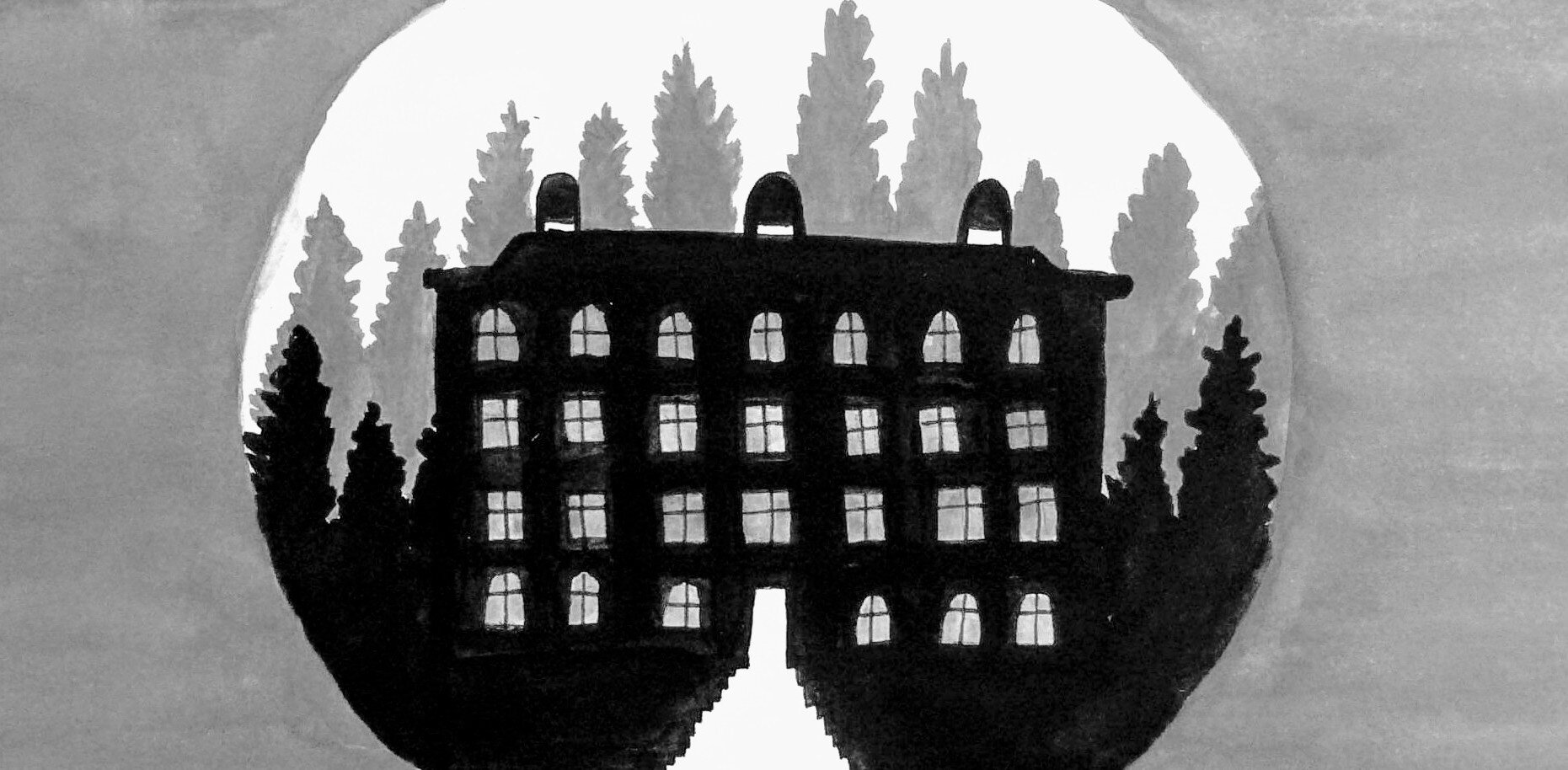Book Review: The Last by Hanna Jameson
From the Lighthouse asked Rebecca Jackson to read Hanna Jameson’s thriller The Last in response to the current period of isolation and uncertainty we are all facing. Telling the story of an American academic searching for the truth about a girl who has been murdered in his Swiss hotel in the aftermath of a nuclear war, The Last has been subject to a variety of reviews.
Illustrated by Samantha Fulton. “Part character study, part whodunnit, part apocalyptic thriller, The Last tries to be many things and so finishes master of none.” — The Girl With Her Head in a Book blog.
This novel garnered a similarly mixed response from me: it was admittedly entertaining yet trivial. It ultimately fails to realise its obvious premise as an updated, gritty And Then There Were None. The ‘post-apocalyptic thriller’ genre ascribed during its marketing campaign is too generous in my view, as Jameson juggles elements of murder mystery, physchological portrait and survival narrative uncomfortably. Readers are led to anticipate atmospheric immersion, a high-concept white-knuckle ride but its stakes are more threatened by gradual social degeneration, not a depraved serial killer.
What struck me is how the text simply begs to be adapted for gameplay or as Netflix’s next-big-thing. Although littered with action-packed episodes, the unsympathetic hero’s intermittent reflections are rarely noteworthy, seemingly filling gaps between climactic moments. Mundanity had the potential to humanise and add texture to the tale, but the monologues remain unenlightening and flat when combined with an economical linguistic style, the tedium of which is reminiscent of an uninspiring journal under unexceptional circumstances, not nuclear apocalypse. There is self-conscious reliance on cliché, with blatant allusions to The Walking Dead and The Shining, however the mediocre prose means that even failsafe terror-inducing tropes leave little lasting impression. Additionally, the source of inspiration from Elisa Lam’s unsolved case induces a brief shudder and is then diminished tonally amongst more intriguing interpersonal sub-plots, becoming more of a peripheral abrasion than an all-encompassing, page-turning pursuit of justice. Frustrating editorial lapses — such as misspelt character names — evoke an eye-roll, diminishing any illusion of danger Jameson is trying to construct.
I could forgive unoriginality were it not for the superficial cast. Their backstories function at best as semi-interesting footnotes, at worst: ham-fisted attempts to establish a semblance of plausibility. They are caricatures with no inner life, shoe-horned into the narrative and easily discarded when convenient (and when this does happen, it produces little effect.) Jon Keller is far and away the least compelling figure, with only his infidelity giving him personal complexity or dimension.
To the book’s credit, there is currency in the divisive atmosphere of the 2016 Presidential Election and its international aftermath. Jameson examines the ramifications of this on inner-group dynamics, albeit alongside thinly-veiled commentary about identity politics which registers as discordant. She succeeds to an extent with the notion of a flawed solitary amateur detective chasing the truth against all odds, which perfectly encapsulates this issue’s theme of ‘isolation.’ His myriad roles as an historian, absentee father, and investigator are uneasily combined and lead to a conflict of interest. The unique, multifarious perspective occasionally incites friction between lived experience and academic objectivity, offering insight into the complexity of commemoration in a post-smartphone era that emphasises our mental complacency and heightens the sense of helplessness.
Despite being consciously fed regurgitated ideas, I was curious enough to see it to its disillusioning end. There was a subtle propulsion throughout, possibly the use of archetypes and predictability promising a satisfying denouement, that made me hope for a final twist to settle the multiple unresolved avenues. The palimpsest testimony direction made me less regretful of having taken the journey, but hungry for this to be better fleshed-out and dealt with in more depth than the rushed publication seemed to permit. The pace fluctuated from the sinfully slow exposition to a condensed, outlined conclusion that revealed the novel’s planning phase in bullet points.
(Side note: I passed this onto my father, an avid reader and he shared my opinions but also managed to finish it.)
